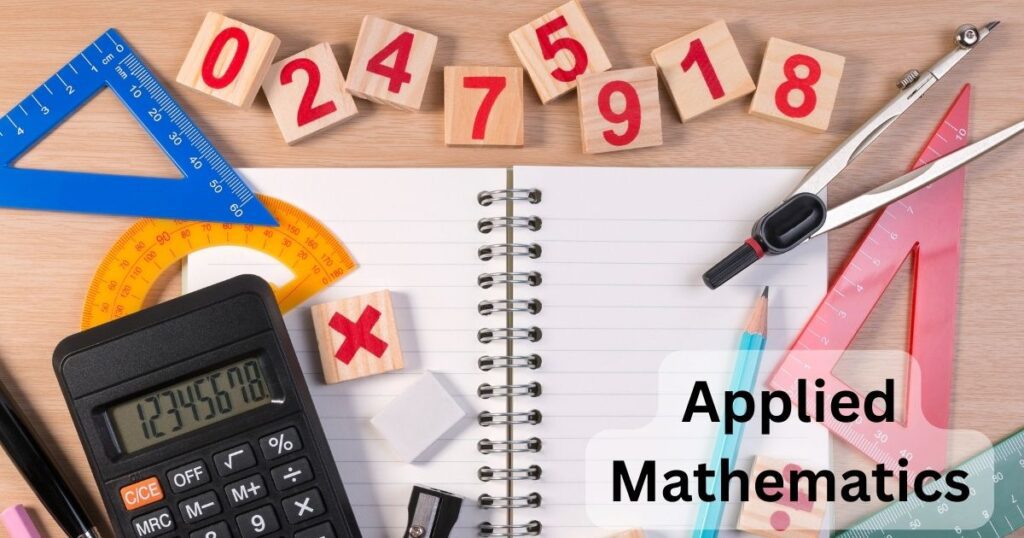Applied Mathematics
Applying mathematical concepts and methods to real-world issues in various disciplines, including science, engineering, economics, and finance, is known as applied mathematics. It entails creating and using mathematical models, algorithms, and computational methods to analyze and solve practical issues.
What do those who study applied mathematics actually do?
To solve problems in various fields, people who pursue applied mathematics frequently use mathematical concepts and methods. The following are some examples of what professionals in this field might do:
1. Create mathematical models:
Applied mathematicians create mathematical models that simulate real-world occurrences, such as the spread of a disease or the operation of financial markets.
2. Data analysis:
Applied mathematicians employ statistical techniques to examine data, such as consumer preferences or the outcomes of experiments.
3. Create algorithms:
Applied mathematicians create computer programs and algorithms to solve complex problems like forecasting weather patterns or streamlining manufacturing processes.
4. Conduct research:
Applied mathematicians research to create fresh approaches to old problems or to adapt existing ones.
5. Teach and mentor:
Applied mathematicians can instruct and guide students in the classroom and the workplace to help the next generation of mathematicians.
Degrees in Applied Mathematics
1. Bachelor’s degree in Applied Mathematics
Typically takes four years to complete and provides a broad foundation in mathematics, including calculus, linear algebra, and differential equations.
2. A Master’s degree in Applied Mathematics
This is typically a two-year program that provides advanced training in numerical analysis, optimization, and probability theory.
3. M.Phil (Master of Philosophy) in Applied Mathematics
This is a research-focused program typically takes one to two years to complete after a Master’s degree.
4. Ph.D. in Applied Mathematics
Typically takes 4-5 years to complete and involves original research in a specific area of applied mathematics. Graduates may go on to work in academia, research, or industry.
Jobs in Applied Mathematics:
Following are some examples of careers that people with an education in applied mathematics may pursue:
1. Data analysts:
use mathematical and statistical techniques to analyze data, spot patterns and trends to help guide business decisions.
2. Actuaries:
are professionals who evaluate and manage risk for insurance companies, financial institutions, and other organizations using mathematical models.
3. Operations research analyst:
solves complex issues in logistics, supply chain management, and resource allocation using mathematical models and optimization techniques.
4. Quantitative analyst:
analyses financial data and evaluates risk for financial institutions or investment firms using mathematical models.
5. Applied mathematician:
someone who conducts research and development for businesses, governmental organizations, or academic institutions to use mathematical models and methods to address real-world issues.
6. Scientist in mathematical modeling:
A modeling scientist creates mathematical models that represent natural phenomena and advance scientific knowledge in ecology, epidemiology, or climate science.
Will a career in Applied Mathematics be worth it?
An applied mathematics career can be very advantageous. The satisfaction of using mathematical methods to solve challenging real-world problems can also lead to various job opportunities across multiple industries. As well as being useful in many different aspects of life, applied mathematics fosters critical thinking and problem-solving skills.



